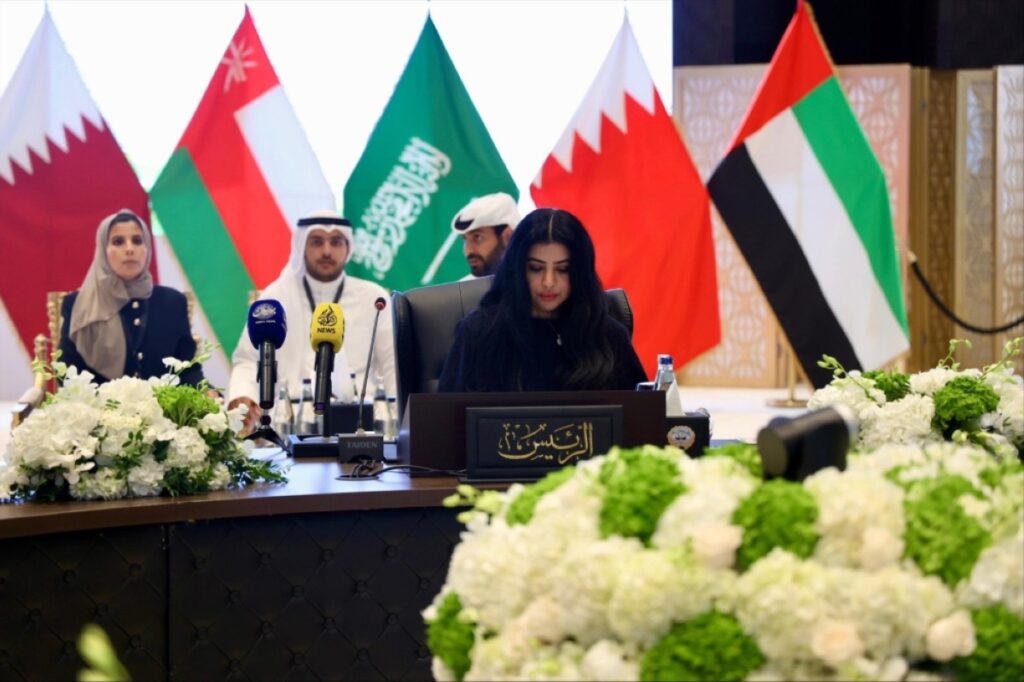Environmental protection an essential pillar of region’s comprehensive development strategy
KUWAIT: Acting Director General of the Environment Public Authority (EPA) Nouf Behbehani reaffirmed Wednesday Kuwait’s firm commitment to supporting joint Gulf environmental initiatives and projects, emphasizing cooperation with other GCC member states to achieve shared goals for a clean, safe and sustainable environment. Speaking at the 45th Meeting of Undersecretaries Responsible for Environmental Affairs in the GCC, Behbehani said the gathering, held under the umbrella of the Gulf Cooperation Council, will strengthen regional coordination and collective efforts in the environmental field.
Behbehani stressed that the global environmental challenges — notably climate change, scarcity of natural resources and pollution — demand enhanced collaboration and intensified efforts among GCC countries to develop sustainable, science-based solutions tailored to the region’s needs. She highlighted the determination of GCC leaders to promote cooperation and integration in all fields, particularly environmental protection and sustainable development, recognizing the crucial role of the environment in ensuring human well-being and preserving natural resources for future generations.
She also expressed appreciation to the GCC General Secretariat, led by Secretary-General Jasem Al-Budaiwi, for its continued efforts to follow up on the implementation of the Supreme Council’s environmental decisions and for supporting the development of joint Gulf mechanisms in this field. Meanwhile, Assistant Secretary-General for Economic and Development Affairs at the GCC General Secretariat Khaled Al-Sunaidi praised the collective Gulf efforts in advancing environmental cooperation. He noted that GCC states have shown growing attention to environmental and climate issues in recent years, driven by their recognition of the environmental challenges’ impact on sustainable development.

Senior officials pose for a group photo after the 45th Meeting of the Undersecretaries Responsible for Environmental Affairs in the Gulf Cooperation Council Countries. – KUNA photos

Al-Sunaidi pointed out that this commitment has been reflected through the adoption of national strategies aimed at improving resource management efficiency, reducing carbon emissions and expanding renewable energy, green hydrogen, recycling and circular carbon economy projects. He added that all GCC countries have achieved significant progress in global energy transition indicators since the Paris Climate Agreement, reflecting their serious pursuit of sustainable production systems.
He emphasized that environmental protection has become an essential pillar of the region’s comprehensive development strategy and a vital component in promoting investment in green sectors. This approach, he said, helps broaden production bases, create quality job opportunities in clean technology fields, and enhance the competitiveness of Gulf economies as they move toward green growth and a low-emission future.
Al-Sunaidi further underlined the GCC’s commitment to aligning its environmental policies with the Paris Climate Agreement and supporting global efforts toward carbon neutrality and the transition to a green economy. He revealed that cooperation among GCC states continues to strengthen joint environmental action through unified policies consistent with the region’s economic and developmental progress.
He added that up to 2024, a total of 1,231 unified Gulf standard specifications and technical regulations have been issued in the environmental field. The current meeting, he said, aims to discuss key trends and draft recommendations for submission to the 27th meeting of GCC ministers responsible for environmental affairs, scheduled for Thursday. Topics on the agenda include following up on the Gulf Green Initiative, reviewing the GCC environmental work plan, and discussing the Gulf Environmental Portal project, alongside issues related to international cooperation agreements and other topics that promote collective Gulf action in the environmental field. — KUNA

